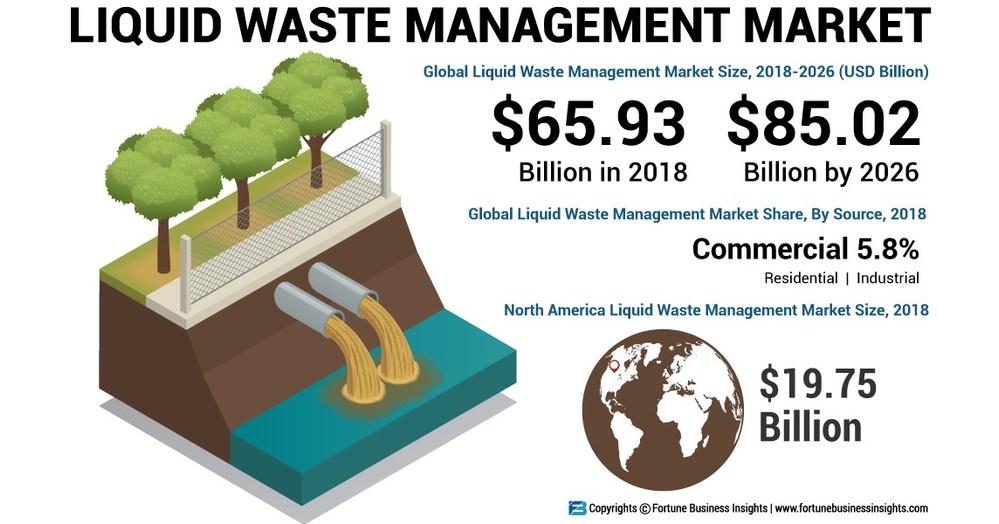The Main Principles Of Reclaim Waste
The smart Trick of Reclaim Waste That Nobody is Talking About
Table of ContentsExamine This Report about Reclaim WasteReclaim Waste for BeginnersReclaim Waste Can Be Fun For EveryoneMore About Reclaim WasteReclaim Waste - An Overview
Residential sewer waste refers to the waste and products from a residential septic tank. The proper administration and disposal of domestic sewage waste call for liquid waste to be moved to a sewer treatment plant where the correct techniques and equipment are used to detoxify and dispose of waste.
Commercial waste usually includes possible threats, such as combustible products or a mix of liquid and solid waste items, and calls for a more innovative and thorough disposal process. The disposal of industrial waste usually entails the filtration of waste before transport to ensure safe and correct disposal. Industrial waste is created from byproducts and runoff of industrial procedures and production.
This type of waste can not make use of the same sewage monitoring transportation or procedures as septic or commercial liquids. The industrial waste monitoring process needs the assessment and screening of fluid waste before it goes through the disposal procedure (liquid waste disposal). Runoff waste is the liquid waste that originates from drainage and excess stormwater in very booming locations or cities
Runoff waste can cause contamination and flooding otherwise dealt with appropriately. Find out more about sewer cleaning and waste monitoring. Making certain correct waste management can avoid catastrophes and minimize ecological harm. Both people in household setups and specialists in business or production markets can gain from comprehending the processes and regulations of liquid waste management.
The Single Strategy To Use For Reclaim Waste
Call PROS Solutions today to learn more about our waste administration and disposal services and the correct methods to look after the liquid waste you produce.
(https://www.pageorama.com/?p=reclaimwaste1)Do you know what happens to your water when you end, flush the bathroom or drain the washing maker? No? Well, it's worth knowing. This supposed 'wastewater' is not just an important resource yet, after treatment, will certainly be released to our land, rivers or the ocean. Utilized water from bathrooms, showers, baths, cooking area sinks, washings and industrial procedures is referred to as wastewater.

water used to cool equipment or tidy plant and tools). Stormwater, a type of wastewater, is drainage that flows go right here from farming and metropolitan locations such as roofing systems, parks, gardens, roadways, paths and gutters right into stormwater drains pipes, after rainfall. Stormwater flows neglected straight to neighborhood creeks or rivers, eventually reaching the sea.
Not known Incorrect Statements About Reclaim Waste
In Queensland, many wastewater is dealt with at sewer treatment plants. Wastewater is transferred from residential or commercial sites via a system of drains and pump stations, referred to as sewage reticulation, to a sewage therapy plant. City governments construct, preserve and operate most sewage treatment plants. Operators are certified under the Environmental Defense Act 1994 to release cured wastewater at an appropriate environmental criterion into rivers.
The Division of Natural Resources recommends city governments about managing, operating and maintaining sewage systems and therapy plants. In unsewered locations, city governments may need owners to set up private or household sewer treatment systems to treat residential wastewater from bathrooms, kitchens, shower rooms and laundries. The Department of Natural Resources authorises making use of household systems when they are shown to be effective.
In some new class, treatment of some stormwater to remove litter, sand and gravel has actually started using gross contaminant catches. Wastewater treatment happens in four stages: Removes solid issue.
Utilizes tiny living microorganisms knows as micro-organisms to damage down and get rid of staying dissolved wastes and great particles. Micro-organisms and wastes are integrated in the sludge.
The Facts About Reclaim Waste Revealed
Nutrient removal is not offered at all sewage treatment plants due to the fact that it calls for costly specialized tools. Clear fluid effluent created after therapy may still consist of disease-causing micro-organisms - liquid waste removal.

The majority of wastewater streams into the sewage system. Under the Act, regional governments carry out authorizations and permits for eco relevant activities (Periods) entailing wastewater releases that could have a regional impact.
The Facts About Reclaim Waste Revealed
Tracking provides factual details concerning water high quality and can verify that licence problems are being satisfied. The details obtained through monitoring offers the basis for making water high quality choices.